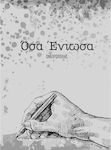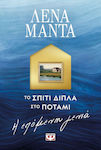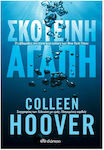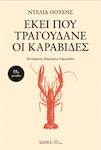Skroutz Buyers Protection
Ο Κόσμος του Τέλους του ΚόσμουCode: 221717
- Author: Luis Sepúlveda
- Publisher: Opera
- Μορφή: Soft Cover
- Έτος έκδοσης: 1996
- Αριθμός σελίδων: 160
- Κωδικός ISBN-13: 9789607073204
- Διαστάσεις: 21×13
Luis Sepúlveda

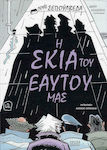





Kid & Teen Literature
Η ιστορία του Μιξ, του Μαξ και του Μεξ, The amazing adventure of the cat with the Greek profile, a mouse and the boy who lived with them
Ad from SelefaisAdded

Greek Fiction Books
Η Ιστορία Ενός Σαλιγκαριού που Ανακάλυψε τη Σημασία της Βραδύτητας
Ad from HartoramaAdded




Buy together

 Top rated
Top rated
Pool Rafts & Inflatable Ride-ons
Intex Inflatable Drink Holder Unicorn White 3pcs
Ad from Gp escapeAdded

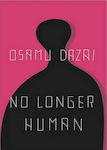
 Top rated
Top rated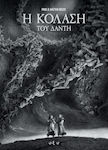
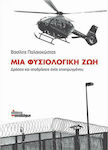 Top rated
Top ratedBiographies & Memoirs
Μια Φυσιολογική Ζωή, Actions and escapes of a bounty hunter
Ad from VivliodiktyoAdded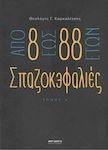
Similar products
All shops
Prices are calculated for:Malta, Other Payment Options
- 9,66 €
- 9,65 €
- 10,39 €
- 11,13 €
- 10,09 €
- 11,92 €
- 14,84 €
- 10,38 €
Description
A cry of protest against the relentless hunting of the whale that paints the seas red. The battle of environmental organizations against the destructive trade of the Japanese.
The anguish of the sea mammal, its greatness and the quality of its soul, given with "magical realism" by an author who is an active member of Greenpeace.
Specifications
Specifications
- Format
- Soft Cover
- Number of Pages
- 160
- Publication Date
- 1996
- Dimensions
- 21x13 cm
Additional Specifications
- Award winning
- No
- Transferred to the Screen
- No
Important information
Specifications are collected from official manufacturer websites. Please verify the specifications before proceeding with your final purchase. If you notice any problem you can report it here.
Reviews
Reviews by our members
A wonderful book, from the exceptional overall work of Luis Sepulveda, that captivates you from the first line both with its subject matter and with its lively, imagery-filled writing style. In just a few pages, the author manages to encompass all the topics that concern him: his love and nostalgia for his homeland Chile, his interest in the natural and human environment, as well as literature. Pay special attention to the way the author handles his references to Herman Melville's novel Moby Dick.
In "The World at the End of the World," the author describes his return to Chile in combination with an action he has taken on behalf of the environmental organization Greenpeace and the alternative news agency he had founded with friends, with the main objective being the issues that impact the ecological space and the restoration of truth in the lies used by rich nations to justify the plundering of poor countries, the plundering not only of their natural resources but also of their future. (page 42) The great conflict that will come later, and that will be revealed through an agonizing process, will be between the ecologists and the Japanese whaling ship Nisshin Maru.
This is generally the plot of the book in which the author, without sacrificing the social element, manages to deliver a work that does not become a hostage of didacticism, while also managing to undermine the certainties of the prejudiced reader. On the contrary, the suspicious reader, and especially the friends of Luis Sepulveda, will enjoy the unique combination of experiential experience, ecological action, description of landscapes, people, and emotions. As he has stated before: "The environment and political activism go hand in hand. Literature cannot change reality, but it can reveal a very important aspect of it. The rediscovery of ecological dignity is largely a political struggle. Some contemporary writers like Paco Taibo or Rolo Diez are politically engaged, as were their predecessors, but they approach political issues from the perspective of historical memory, with references to what has happened and what should not be forgotten or repeated. Their approach is critical, not without passion but very detached from reluctant militancy."
I will conclude with the following observation: "The World at the End of the World" in the hands of another creator could have possibly turned into one of those, often interesting, bulky and verbose readings that revolve around their subject matter, exhausting or simply entertaining readers just because... that's what the market demands. Here, within a few pages, literally everything fits. In my opinion, this creative simplicity is the greatest advantage of the book. Personally, I recommend it to younger readers as well. They will come out as multiple winners.
[The book is published by Opera Editions, translated by Eleni Haratsi. It includes a map of Patagonia and Tierra del Fuego, along with notes and an afterword by the translator.]
Translated from Greek ·Did you find this review helpful?






















































